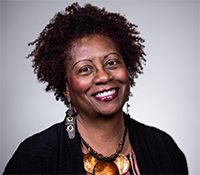IT TAKES A TEAM – WORKING WITH YOUR HIGH SCHOOL COUNSELOR
There’s lots of buzz in the community about potential cuts in counseling resources within East Side Union High School District (ESUHSD). A 2017 report by the American School Counselor Association (ASCA) listed the national average for student-to-counselor ratio was 482:1. California ranked second highest with a ratio of 760:1 behind Arizona; ASCA’s recommended student-to-school counselor ratio is 250:1. American Counseling Association President Gerard Lawson stated “In today’s schools, counselors are also relied on for their expertise in working with broader mental health needs…we know that counselors can server their students, schools and communities more effectively, when the ratio of students to counselors is lower and sustainable.”
When I launched my educational consulting practice 9 years ago, it was during a time when the counseling staff at Evergreen Valley High School was experiencing cuts. I frequently met with them to offer support and assistance, and shared pertinent information with them from conferences, college visits and other professional development activities I attended.
I still remember a very poignant conversation I had with them. When asked “As a counselor, what keeps you up at night?” the unanimous response was “Knowing that I am not able to serve students in the way that I would like, given the extremely high caseload I’m forced to carry.” Remembering those words, speaking with counselors in other parts of the country, and knowing first-hand the challenges of assisting students through the college preparation and application process, I wanted to share some strategies for students and parents to consider in order to build successful relationships with their school counselors.
Remember that Counselors DO want students to be successful!
Understand and Value the important role of the Counselor – S/he helps the student plan their college preparatory curriculum; submits recommendation forms and releases your official transcript to colleges; arranges visits by college admission reps; conducts student and parent workshops about the college-going process; administers state-mandated tests as well as SAT, PSAT, ACT and AP exams; processes fee waivers for standardized tests and college applications; and so much more!
Encourage students to initiate and maintain contact with their counselor – I’m always amazed at the number of students who do not even know their counselor’s name. Don’t seek out your counselor only when you need them to do something on your behalf.
Make appointments – This is especially true for parents. Often parents just “stop by” and then become frustrated when a counselor is not available to see them. Given heavy caseloads and a multitude of other responsibilities, counselors often have specific hours dedicated to meeting with students and/or parents. Adhering to those times whenever possible is advisable.
Familiarize yourself with the Counseling resources at your school – Most schools have a section on the school’s website that contains information such as staff bios, processes/procedures, hours of availability, and upcoming events. If your schools has implemented online tools such as Naviance, take advantage of those resources as well; that is often the primary vehicle to communicate college rep visits, scholarship opportunities and other important information.
Parents, it’s not about You – Frequently, counselors get bogged down in conversations with parents whose focus is more on their own needs/wants vs. the student’s. An unintended consequence is that students may feel embarrassed or uncomfortable by that interaction and many times it puts more pressure on the student!
Communication is key – Positive communication goes a long way and is a cornerstone to building a healthy relationship.
Pack your patience – Remember that it’s a balancing act for the counselors – regardless of the student-to-counselor ratio.
Creating a proactive, positive relationship with the school counselor can help ease the stress of the college preparation and application process. It’s a partnership between the student, parents and counselor, where each person has a role. The counselor’s role is to work on behalf of the student, utilizing his/her expertise. Good luck!
Antoinette Battiste is an Independent Educational Consultant and 20+ year resident of Evergreen. She is an active volunteer with many community organizations in Silicon Valley, including Alpha Kappa Alpha Sorority, Inc., Santa Clara County Alliance of Black Educators, Silicon Valley Black Chamber of Commerce the African American Community Services Agency, and the Northern California Association of Morehouse Parents.

